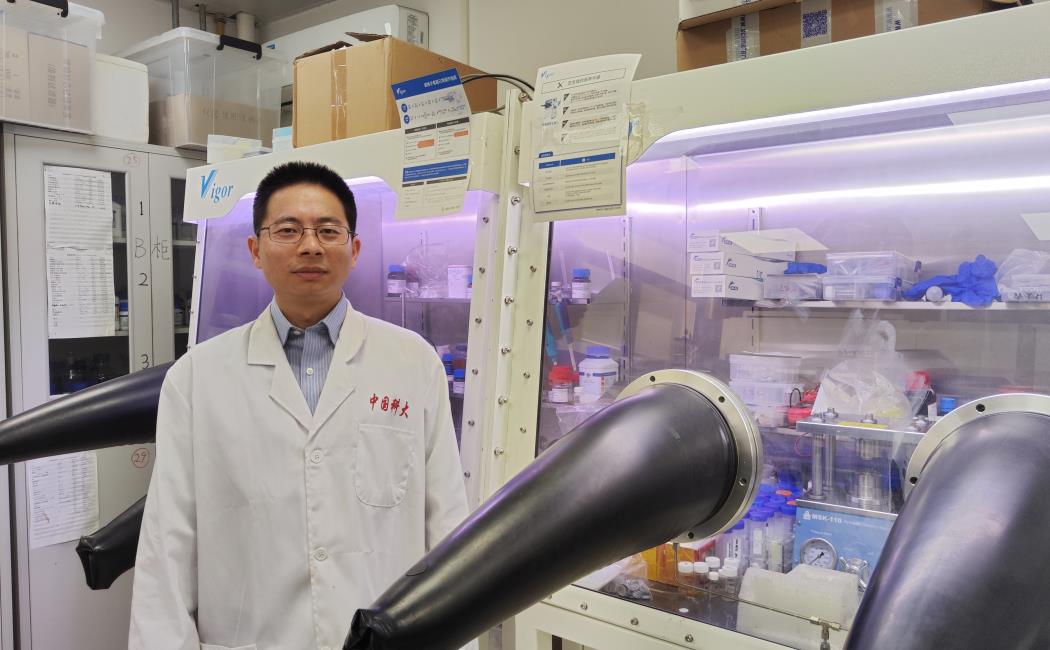


Starting in 2009, Wei Chen was a member of KAUST’s founding class. He left in 2013 with both his MS and PhD degrees in materials science and engineering.
“I actually learned of KAUST by accident,” said Chen. “During my undergrad, I attended a Spring lecture series that included a presentation by KAUST staff introducing the university to science students around the world, and I became very interested in this new university.”
Chen’s decision to pursue graduate school at KAUST was both significant on an academic and personal level.
Becoming an international student
“Moving to KAUST was the first time I left my country,” said Chen. “But I wasn’t nervous. KAUST did a great job orienting students to the university and the culture while encouraging the new students to make connections and friendships with others from our home countries. I was able to communicate with a large group of Chinese students even before landing in Saudi Arabia, and then, once we were on campus, it was very easy to make friends with people from over 80 countries.”
While the international campus was a great place to make friends and experience new cultures, transitioning to an English-speaking lifestyle had its challenges.
“In the master’s program, we had a lot of course work, and being a non-native English speaker, I felt that I had to do double the work,” said Chen. “While I knew how to explain the material I was learning in Chinese, it didn’t always translate well in English.”
Chen worked on sustainable energy storage research for his masters, a topic he believed would become increasingly important in both Saudi Arabia and his home country. To further his interest in the topic, Chen attended a lecture given by a visiting expert in the field, Professor Yi Cui from Stanford University.
In the summer of 2010, Chen was meant to do an internship, and because the facilities for his research topic at KAUST were not yet completed, he interned with Professor Yi Cui himself.
International experience at Stanford University
“I was the first student at KAUST to work on battery research, and KAUST supported my travel to go learn from the experts in the US,” said Chen. “I spent two months in California working on supercapacitors and textiles to make electrodes for wearable devices. Then, when I came back to KAUST, I shared everything I learned with my PI, Professor Husam Alshareef, and we developed our lab based on Stanford’s.”
Being a member of KAUST’s founding class allowed many students from that era to gain experience building a lab from the ground up. In Chen’s case, this experience convinced him that KAUST was the best place to continue with his research interests after receiving his master’s degree.
“A few months before graduation, I was thinking about where I would go next to do my PhD,” he said. “And to be honest, at that time, all of the doubt I may have had about KAUST disappeared, so I decided to stay.”
“My PhD research focused on supercapacitors and the transition metal oxides, essentially, I was looking for ways to make energy storage devices and transfer more efficient and sustainable,” said Chen. “I published many first-author papers and had success in my research projects, and I even started advising and supervising new students, which may have contributed to my interest in running my own lab.”
From a postdoc at Stanford to a professorship in China
Chen graduated from KAUST in 2013 and continued in his field as a post doc at Stanford before he started his own research lab at the University of Science and Technology in China, one of the top universities in the country.
“Now, I run my lab of about 30 students and post docs, researching batteries and large-scale energy storage technology,” he said. “Since starting the lab in 2019, it has grown quickly, and I am constantly learning from my students and my past mentors at KAUST.”
Reflecting on his time spent at KAUST, Chen congratulates current KAUST students.
“KAUST has made a lot of progress since the founding class, and it has truly built a strong international reputation. If you are a student there, good job, you made it. My advice to students is to simply enjoy the time they have there.”
Leave a Reply
Your email address will not be published. Required fields are marked *